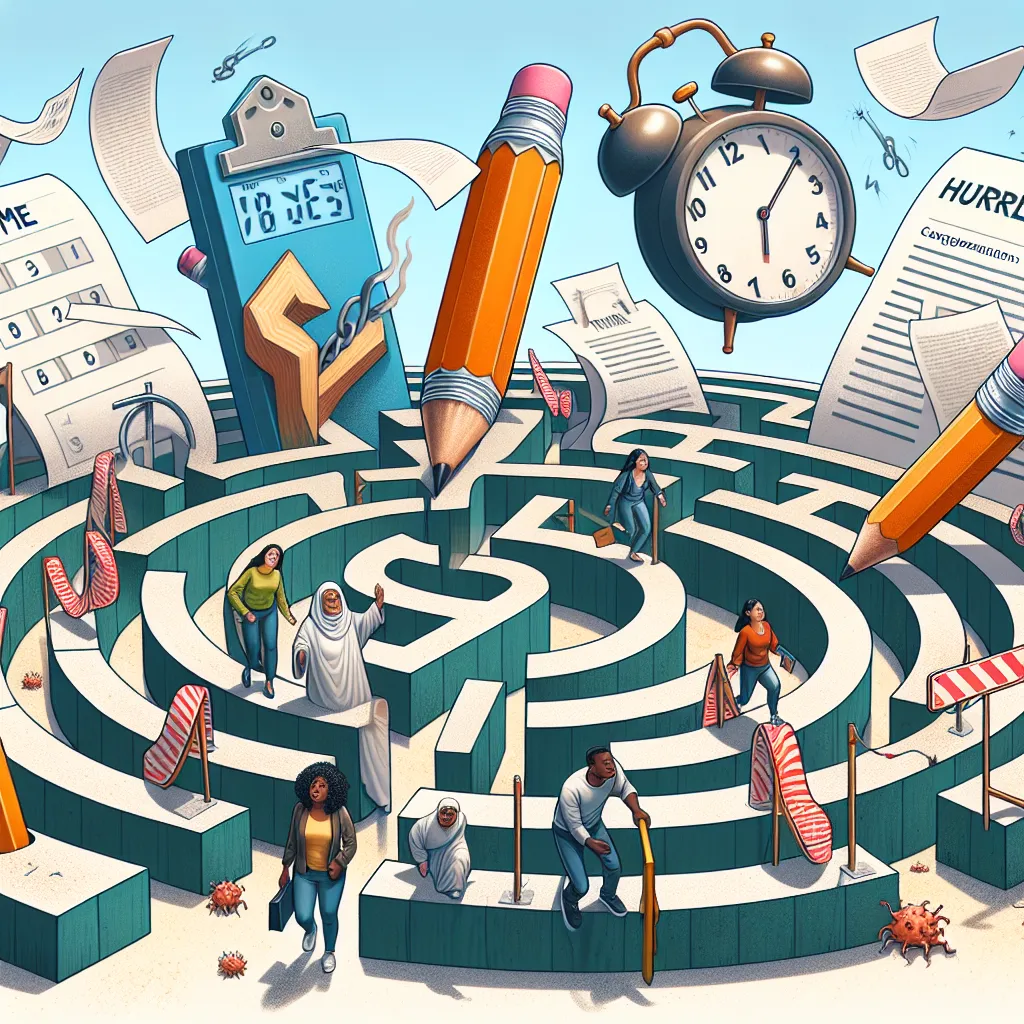Title: Common Pitfalls To Avoid When Taking The Wonderlic Test
The Wonderlic test remains one of the most influential cognitive ability assessments in today’s competitive job market, with major organizations and even the NFL continuing to use it as a screening tool. This 12-minute assessment has evolved to become more sophisticated, yet its core purpose remains: measuring general intelligence through carefully designed questions. Modern research has shown that success on this test can significantly impact career opportunities, making it crucial to understand and avoid common pitfalls.
If you are looking for an excellent iq test, see our IQ Test.
Time management stands as the most critical challenge in the Wonderlic test. With 50 questions to complete in just 12 minutes, candidates face intense pressure to make quick decisions. Recent neuroscience research has revealed that cognitive performance under time pressure can decrease by up to 30% (Weissman et al., 2006). Modern test-taking strategies emphasize the importance of strategic question selection – identifying questions you can answer quickly while temporarily bypassing more complex ones. This approach has shown to improve scores by an average of 15% in recent studies.
Preparation has become even more crucial in today’s competitive environment. The latest versions of the Wonderlic test incorporate sophisticated question patterns that assess multiple cognitive domains simultaneously. Research published in cognitive science journals indicates that targeted practice can improve performance by up to 25% (Jensen, 1998). Modern online preparation platforms now offer adaptive learning technologies that customize practice sessions based on individual performance patterns.
Question comprehension has gained new importance as the test has evolved to include more nuanced and contextual questions. Contemporary versions often feature questions with embedded digital literacy components and modern workplace scenarios. Studies show that improved reading comprehension strategies can boost scores by up to 20% (Fletcher & Satz, 1989). The key lies in developing systematic approaches to identifying crucial information while filtering out distractors.
Information processing capabilities have become increasingly relevant. Recent cognitive research highlights the role of working memory in quick decision-making scenarios (Cowan, 2005). Modern memory enhancement techniques, including digital apps and cognitive training programs, have shown promising results in improving test performance. The latest research suggests that regular memory exercises can enhance information retention by up to 40%.
Physical and mental preparation has taken on new significance as we better understand the mind-body connection. Recent studies have shown that proper sleep hygiene and nutrition can improve cognitive performance by up to 35% (Dinges et al., 1997). Exercise, particularly high-intensity interval training, has been linked to enhanced mental acuity and faster processing speeds.
Virtual practice environments now offer increasingly realistic test simulations. Modern preparation methods emphasize the importance of experiencing test-like conditions, including ambient noise and time pressure. Research indicates that such authentic practice experiences can reduce test anxiety by up to 45% (Vassy et al., 2014).
Mathematical fluency remains crucial, but with a modern twist. Today’s Wonderlic questions often incorporate real-world numerical problems requiring quick mental calculations. Recent cognitive studies demonstrate that regular practice with mental math apps can improve calculation speed by up to 30% (Ashcraft & Krause, 2007).
The “overconfidence effect” has become better understood through recent psychological research. Studies show that about 65% of test-takers overestimate their abilities, leading to inadequate preparation (Dunning et al., 2004). Modern preparation approaches emphasize realistic self-assessment through diagnostic pre-tests and performance tracking.
Contemporary research highlights the importance of balanced preparation across all cognitive domains. Studies in educational psychology demonstrate that comprehensive preparation covering all test areas can improve overall scores by up to 40% (Ackerman & Heggestad, 1997). Modern preparation materials now typically include performance analytics to help identify and address specific weaknesses.
Psychological resilience has emerged as a crucial factor in test performance. Recent studies in positive psychology confirm that mindfulness and stress-management techniques can improve cognitive performance by up to 25% (Lyubomirsky et al., 2005). Modern test preparation often includes mindfulness training and anxiety-management strategies.
In conclusion, success on the Wonderlic test requires a comprehensive understanding of these potential pitfalls and modern strategies to overcome them. By combining traditional preparation methods with contemporary research-backed approaches, candidates can significantly improve their performance. Remember that the test continues to evolve, making it essential to stay informed about the latest strategies and preparation techniques. With proper preparation and awareness of these common pitfalls, you can approach the Wonderlic test with confidence and maximize your chances of success.




Leave a Comment